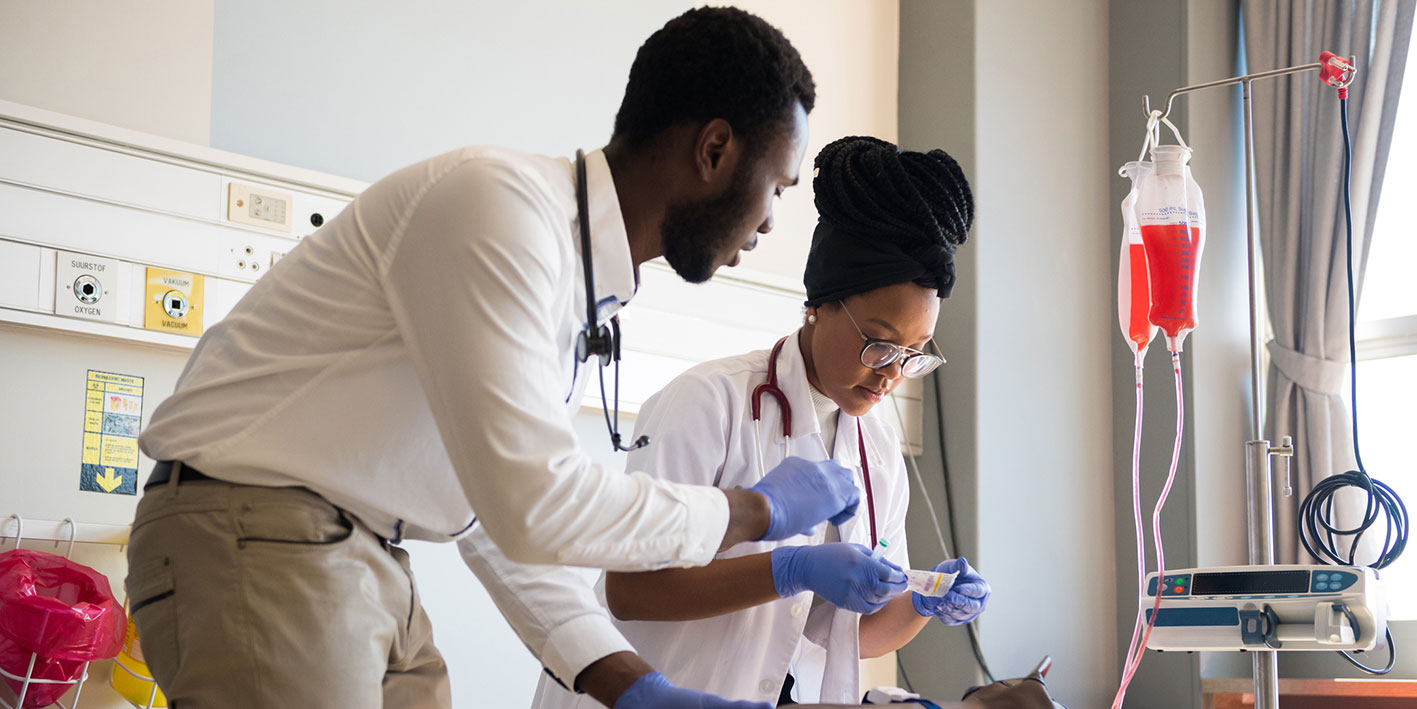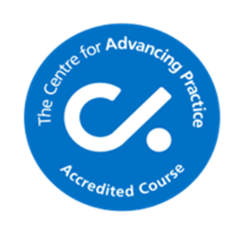.jpg)
Clinical Practice Master’s degree secures official accreditation by NHS England

The University of Wolverhampton has secured official accreditation of its Master’s degree in Advanced Clinical Practice, assuring students and employers that the programme meets the standards set out by NHS England.
NHS England-accredited programmes are one of the benchmark routes to recognition for practitioners, helping to ensure a consistent level of quality across England.
The University has now been officially registered with NHS England as an accredited programme with the application of the Programme Accreditation Mark.
This will enable students registered on either of our two routes: MSc Advanced Clinical Practice (with V300 Non-Medical Prescribing) NH135P31UW and MSc Advanced Clinical Practice (with Specialist Negotiated Practice) NH134P31UW to be awarded their 'digital badge' upon completion of the programme.
Sandra Dilks, Senior Lecturer – CPD and Course Lead for MSc in Advanced Clinical Practice in the University’s Faculty of Education, Health and Wellbeing, said: “This is a huge achievement for the programme and the University as it recognises the quality of our programme. This is the result of two years of work to meet the standards required.
“This further enhances our course offering for healthcare professionals and supports our journey towards becoming a medical university.”

Benefits of the digital badge:
Practitioners
- Make your achievements, a permanent, verifiable part of your online profile.
- Share your achievements with online friends and social media followers.
- Easily adding your badge to an email signature, CV, website and more.
- Embed your badge on a personal website or blog.
- Send or show your badge directly to a colleague, a recruiter, or your employer.
- Recognisable and transferable qualifications.
- More consistent recognition of people working at an advanced level of practice.
- Help raise the profile of Advanced Practitioners.
Employers
- Checkable standardisation of recognition of quality assurance education, training and experience as an advanced practitioner.
- Easier to identify advanced practitioners with quality-assured qualifications or educational equivalence and experience for posts, including those already employed and applicants for new posts.
- Support governance and quality assurance.
- Recognisable and transferable qualifications that enable a fully utilised workforce.
- More consistent recognition of people working at an advanced level of practice.
Patients, carers and families
- Checkable standardisation of recognition of the quality assured preparation of advanced practitioners.
- Provides assurance that their practitioner has received advanced practice-level training/education.
- Makes it easy to check the educational level of advanced practitioners.
- Enables increased awareness and understanding of advanced practitioner roles.
(NHS England, 2024)
For more information please contact the Corporate Communications Team.


/prod01/wlvacuk/media/departments/digital-content-and-communications/images-2024/Diane-Spencer-(Teaser-image).jpg)
/prod01/wlvacuk/media/departments/digital-content-and-communications/images-18-19/220325-Engineers_teach_thumbail.jpg)
/prod01/wlvacuk/media/departments/digital-content-and-communications/images-2024/241024-Dr-Christopher-Stone-Resized.jpg)
/prod01/wlvacuk/media/departments/digital-content-and-communications/images/stock-images/Wulfuna-Building-sunny-day---news-teaser.jpg)
/prod01/wlvacuk/media/departments/digital-content-and-communications/images-2024/241014-Cyber4ME-Project-Resized.jpg)
/prod01/wlvacuk/media/departments/digital-content-and-communications/images-2024/240315-Research-Resized.jpg)
/prod01/wlvacuk/media/departments/digital-content-and-communications/images-18-19/210722-Ambika-Paul-Resized.jpg)
.jpg)
.jpg)